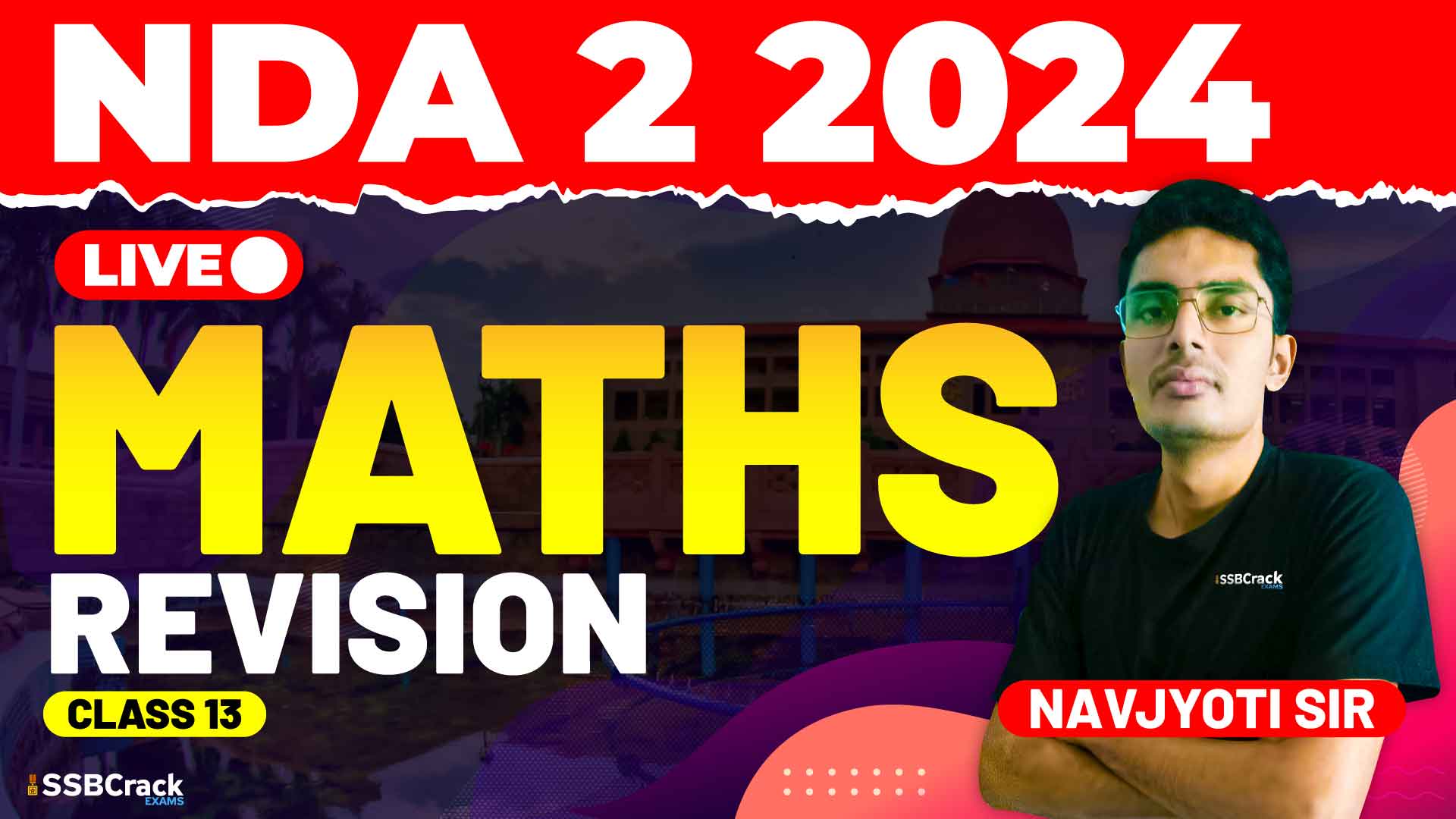Integration and differential equations are pivotal topics in the NDA-NA Mathematics syllabus. These areas not only form the foundation for many complex problems but also frequently appear in the exam. In a recent class, focused on Multiple Choice Question (MCQ) practice, students revised key concepts related to indefinite and definite integrals, as well as differential equations. This article aims to highlight these topics and provide strategies for effectively solving related MCQs, keeping in mind the exam pattern of the NDA-NA exam.
Understanding Integration: Indefinite and Definite Integrals
Integration is often referred to as the reverse process of differentiation. While differentiation deals with finding the rate of change, integration focuses on finding the total value or accumulation of quantities.
Indefinite Integrals
Indefinite integrals represent a family of functions and are essential for finding antiderivatives. The key points covered in the class included:
Basic Integration Rules:
- Understanding the fundamental rules of integration, such as the power rule, sum rule, and constant multiple rule, is crucial. These rules serve as the building blocks for more complex problems.
Integration of Common Functions:
- Mastery of the integration of basic functions like polynomials, trigonometric functions, exponential functions, and logarithms is essential for solving various problems in the exam.
Integration by Substitution:
- This method is useful when the integrand is a composite function. Recognizing patterns that can be simplified through substitution is key to solving these types of problems efficiently.
Integration by Parts:
- This technique is often used when the integrand is a product of functions. Understanding when and how to apply integration by parts can help tackle more complex integrals.
Definite Integrals
Definite integrals, unlike indefinite integrals, evaluate the area under a curve between two points. The key aspects discussed were:
Properties of Definite Integrals:
- Properties such as the additivity of integrals and the relationship between definite integrals and area under a curve are crucial for solving related MCQs.
Evaluation of Definite Integrals:
- Understanding the process of evaluating definite integrals by applying limits to the antiderivative was emphasized. This skill is particularly useful in questions that require precise numerical answers.
Geometric Interpretation:
- Interpreting definite integrals as the area under a curve or between curves can simplify many problems, especially those that have a geometric context.
Mastering Differential Equations
Differential equations involve equations that relate a function with its derivatives. They are crucial in modeling various physical and engineering problems, making them a vital part of the NDA-NA syllabus.
Types of Differential Equations:
- The class covered first-order and first-degree differential equations extensively. Understanding the difference between linear and non-linear differential equations is important for the exam.
Solving Differential Equations:
- Techniques such as separation of variables, homogeneous equations, and integrating factors were discussed as key methods for solving differential equations.
Initial Value Problems:
- These types of problems involve finding a specific solution to a differential equation that satisfies given conditions. Recognizing the conditions and applying them correctly can help solve these problems efficiently.
Strategies for Solving MCQs on Integration and Differential Equations
Given the complexity and variety of problems that can be posed in the NDA-NA exam, it’s important to approach MCQs on integration and differential equations strategically:
Identify the Type of Problem Quickly:
- Quickly assess whether the problem involves indefinite integrals, definite integrals, or differential equations. This initial identification helps in choosing the right approach.
Use Basic Techniques First:
- Start with basic integration techniques or simple differential equation methods. Often, complex problems can be simplified by applying fundamental rules or techniques.
Break Down Complex Problems:
- For integrals or differential equations that seem complex, break them down into smaller, more manageable parts. Solving these parts step by step can make the overall problem easier to handle.
Look for Simplifying Patterns:
- In integration problems, look for patterns or substitutions that can simplify the integrand. Similarly, in differential equations, check if the equation can be simplified or factored.
Eliminate Incorrect Options:
- In MCQs, use the process of elimination to narrow down your choices. If an option violates a basic property or rule, eliminate it and focus on the remaining options.
Time Management:
- Time is of the essence in the NDA-NA exam. If a problem seems too time-consuming, mark it for review and move on. Return to it later if time permits.
Practice with Previous Year Papers:
- Regular practice with previous years’ papers and mock tests helps in familiarizing yourself with the types of questions that are typically asked. It also improves speed and accuracy.
Conclusion
Integration and differential equations are integral parts of the NDA-NA Mathematics syllabus, requiring a clear understanding of both theory and application. By focusing on the strategies discussed in this article and practicing regularly, you can significantly enhance your problem-solving abilities in these areas. Remember, mastering these topics is not just about memorizing techniques, but about understanding when and how to apply them effectively in the context of an exam.
As you prepare for the NDA-NA exam, keep revising these concepts, practice extensively, and approach each problem with confidence. With the right strategies and consistent effort, you’ll be well-prepared to tackle any question on integration and differential equations that comes your way.







